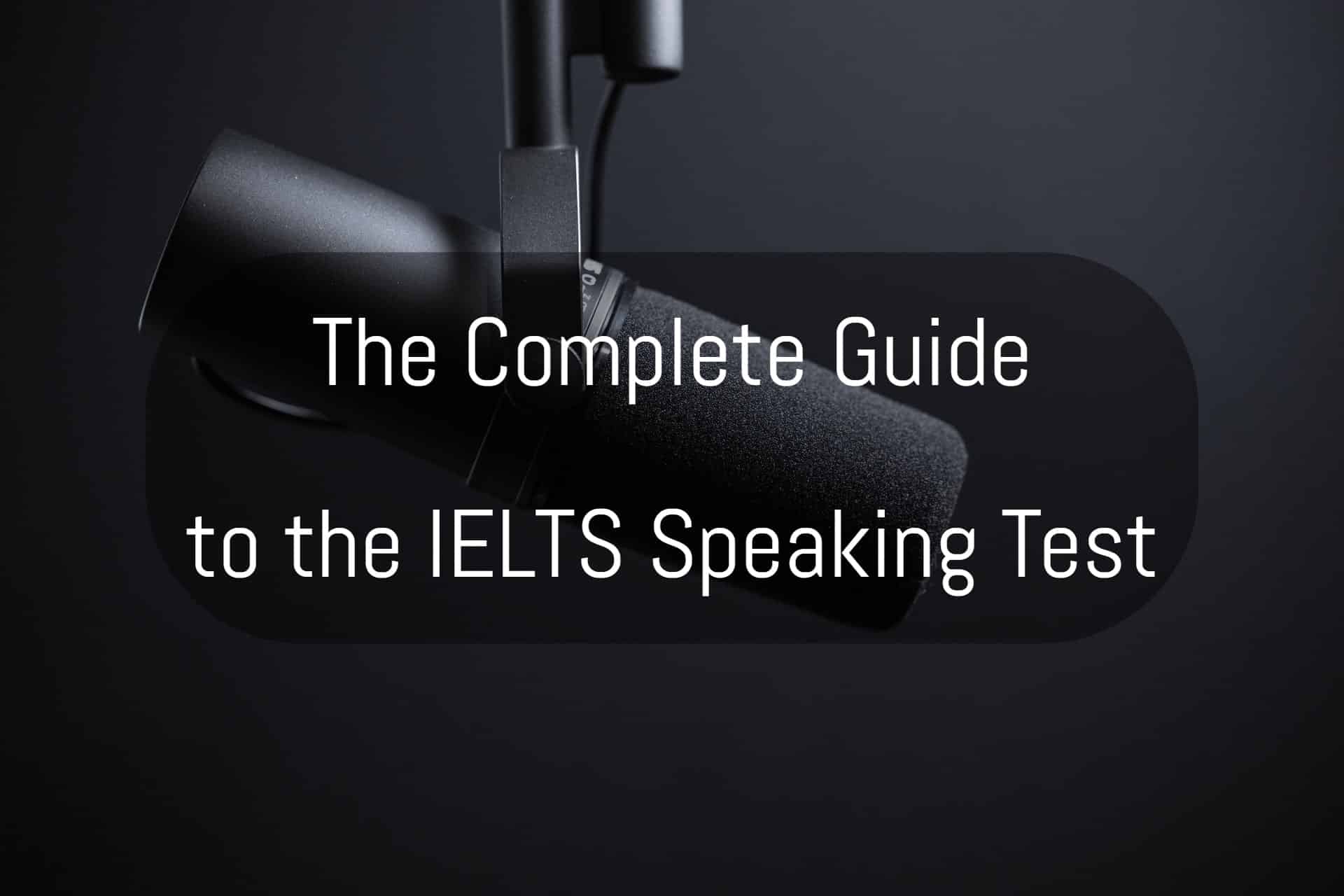The IELTS speaking module is divided into three parts, and the entire test lasts for about 15 minutes. The examiner will ask you different types of questions in each part.
Part 1: Greetings and personal questions
In this part, the examiner will greet you and then ask for your ID card or passport. After that, the questions will be about where you live, your work, education, hobbies, and habits. These are familiar topics that you should be able to talk about easily and fluently.
Speaking at length without going off-topic is necessary for a band 7+.
Examples:
Do you work or study?
– Simple answer: I’m a student.
– Better: Well, right now, I’m a university student, but I also work as a part-time research assistant.
What do you do in your free time?
Simple answer: I read books or watch movies.
Better: Sometimes, I read books, especially thriller novels. Watching television comedy shows like “Ghosts” is another pastime activity that I enjoy.
Part 2: Talking about a topic for two minutes nonstop
In this part, you’re given a card with a topic. The topic is usually about describing a person, place, experience, activity, or object. You’re also given a pencil and a piece of paper. You’ll have 60 seconds to prepare your speech about the topic, and then you should talk about it for two minutes. You will also see a few subtopics on the card, which are there to help you organize your ideas better, but you don’t have to stick to them. The card will look like this:
Describe someone you know who is popular in your neighborhood.
You should say:
- who he/she is
- when you first met him/her
- how you would describe his/her character
- and say what the reason for his/her popularity is.
As you can see, the card has a topic and a few subtopics in bullet points.
For speaking part 2, I always ask my students to tell ONE story that starts in the past and ends in the future. For example, if the card asks you to talk about someone you admire, you can say who he/she is and then talk about how you met him/her (past), what he/she does and why you admire him/her (present), and what you think he/she might achieve in the future. It’s like a movie.
Sometimes, based on the question, you might need to change the order.
Example: Talk about your future plans.
This is what I recommend:
- Say what you want to do in the future.
- Give a little background from the past (why you want it)
- What are you doing these days to achieve it?
Another example: Describe how to use a piece of equipment
My recommended answer:
- Say what it is
- Describe its structure, software, etc. so that you can explain how it is used.
- Say when you started using it (what did you need to do, and why was the tool necessary or helpful?) → How did you use it to solve the problem?
- How often do you use it, and what for?
- Think of other possible uses, and how you can use the tool to solve the issues → future
Part 3: More questions about the topic of part 2
In this part, the examiner will ask you a few questions about the topic of part 2. He or she may also ask you harder questions to see your limits.
In part 3, you need to explain a bit more:
What are the most popular travel destinations among people in your country?
Simple answer: X and Y are the two most visited locations by [nationality] tourists.
Better answer: Well, many people in my country prefer going abroad for their vacation. Families, for example, like to spend a few days at the beach in [name of a foreign country], while some other thrill-seeking people love to go on an adventure in the forests of [name of another foreign country]. This is mainly because there aren’t any such tourist attractions in [name of your country].
I’m not giving you any templates. I don’t believe in them. I’m just trying to illustrate how you can show your language skills to the examiner.
IELTS speaking scoring criteria
Your speaking is scored from 1 to 9 based on four criteria. You can find the public version of the speaking band descriptors here. These criteria are also explained below:
Fluency and Coherence
Lexical Resource
The vocabulary you use to develop your topic should be chosen wisely. You need to choose appropriate vocabulary items (idioms, collocations, topic-specific words, etc.) to convey precise meaning. The importance of idioms and collocations becomes significant when you want to achieve band 7 and above. The more flexible you are with the use of different vocabulary items, the higher your band score will be.
Grammatical Range and Accuracy
When it comes to grammar, the first thing you need to be careful about is how accurate your sentences are. In other words, your sentences should be grammatically correct. Even if you have a good variety of structures in your speaking, grammatical mistakes will keep you from getting high band scores. Once you are able to make error-free sentences, you should focus on the variety of your sentence structures to score higher.
Pronunciation
Non-native speakers sometimes speak with accents that make it difficult for the listener to understand them. You need to work on your accent so that your mother tongue has little or no effect on your English accent. You should also work on the features like intonation, stress, tone, and chunking to make your speaking sound more like that of a native speaker. Simply put, your speaking should sound natural.
Question: Should I speak with a British accent only?
Answer: IELTS is an international language test. You can have a British or American accent, but try not to mix the two.
Tips for the test day:
- Think of the examiner as your respectful friend, not an authority.
- Always smile and be confident. Students who score low are usually timid because they are too busy thinking about vocabulary and grammar.
- Use conversational language. You are not taking a writing test. You’re speaking to a friend, so use idioms and expressions that are normally used in speaking. However, you need to be careful not to use +18 language.
- Don’t force vocabulary into your speech. You should sound natural if you want to achieve band 7 and above.
- Don’t worry if the examiner stops you. It doesn’t mean you have done a lousy job. They just need to ask a certain number of questions.







